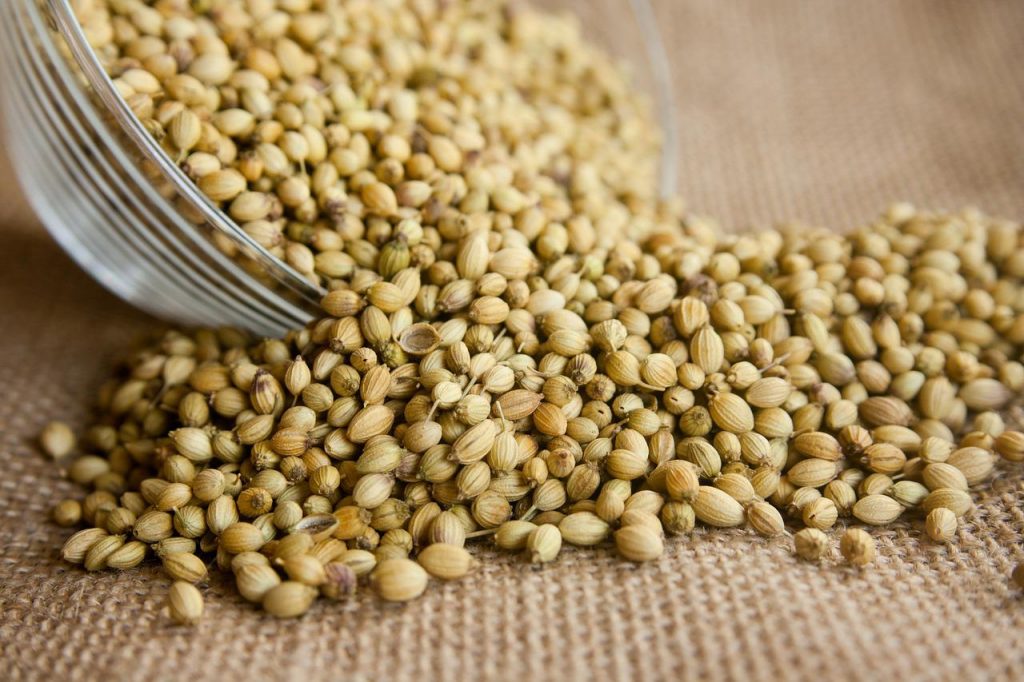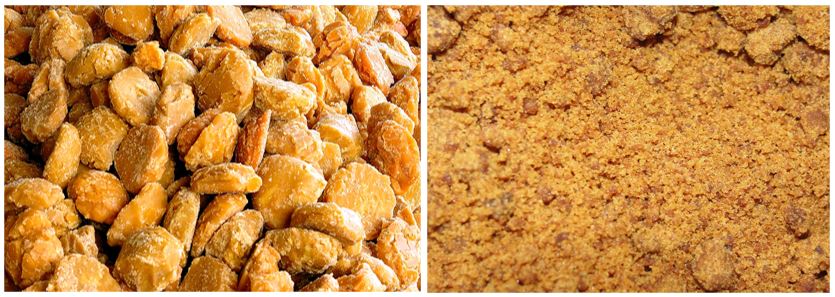
Turmeric has long been an integral part of the Indian diet and culture. Its vibrant yellow hue and distinct flavor have made it a staple spice in various culinary dishes. However, beyond its culinary uses, raw turmeric itself is considered a super therapeutic ingredient, packed with numerous health benefits. 🌿🌟
In this post, we will explore the incredible advantages of incorporating raw turmeric into your daily routine. From boosting digestion to relieving pain, from promoting skin health to potentially preventing diseases like Alzheimer’s and cancer, raw turmeric has gained recognition for its powerful properties. So let’s dive into the wonderful world of raw turmeric and discover how it can enhance your well-being! 💪💛
1. Boosts Digestion
- The most famous component of raw turmeric, curcumin, is said to trigger bile production, aiding smoother movement through the digestive tracts.
- Curcumin’s digestive benefits may help alleviate issues such as indigestion, heartburn, irritable bowel syndrome (IBS), stomach ulcers, and general irritation.
2. Stomach Issues
- As per Ayurveda, many health issues stem from the stomach, and curcumin is believed to work wonders in situations like indigestion, heartburn, IBS, stomach ulcers, and general gastric discomfort.
3. Anti-inflammatory Properties
- Raw turmeric is renowned for its anti-inflammatory properties, making it useful for conditions such as rheumatoid arthritis and osteoarthritis.
- It is also used to treat inflammation caused by eye infections.
4. Skin-Friendly
- For centuries, raw turmeric has been utilized to address various skin issues, thanks to its potential healing and rejuvenating properties.
- It not only helps in treating specific skin conditions but also promotes overall skin health, leaving you with a radiant and glowing complexion.
5. Excellent Antiseptic
- While your favorite turmeric pickle may serve this purpose, raw turmeric has a long history of traditional use as an ointment for cuts and injuries.
- So, just in case, raw turmeric can come to the rescue as a natural antiseptic when needed! 😄
6. Pain Reliever
- Apart from its culinary and medicinal uses, raw turmeric is also consumed as a pain reliever.
- For best effects, it is recommended to consume it with warm milk or apply it as a paste on the affected area.
7. Blood Purifier
- Raw turmeric is believed to regulate blood clot formation and has been praised for its blood-cleansing abilities.
- Several studies and experts have vouched for the potential of raw turmeric to purify the blood and maintain its health.
Curcumin’s Incredible Benefits Against Depression 😊
Depression is a challenging condition affecting millions of people worldwide. Curcumin, the active compound in turmeric, has shown promising results in treating depression. Let’s delve into the research on curcumin and its potential benefits:
– Curcumin and Antidepressant Effects
- In a controlled trial, 60 patients were randomized into three groups: one group took prozac, another group took a gram of curcumin, and the third group took both prozac and curcumin.
- After six weeks, curcumin led to improvements similar to prozac, and the group that took both prozac and curcumin experienced the best results.
- According to this small-scale study, curcumin exhibits comparable efficacy to an antidepressant.
– Boosting Brain-Derived Neurotrophic Factor (BDNF)
- Depression has been linked to reduced levels of brain-derived neurotrophic factor (BDNF) and a shrinking hippocampus, a brain area associated with learning and memory.
- Curcumin has been found to increase BDNF levels, potentially reversing some of these changes.
- Additionally, curcumin may boost brain neurotransmitters serotonin and dopamine, further contributing to its potential antidepressant effects.
Curcumin’s Potential in Preventing and Treating Alzheimer’s Disease 😊
Alzheimer’s disease, the most common neurodegenerative disease worldwide, is a leading cause of dementia. While no definitive treatment for Alzheimer’s exists, curcumin has shown promise in this field. Here’s what research suggests:
– Crossing the Blood-Brain Barrier
- Curcumin has the remarkable ability to cross the blood-brain barrier, which is crucial for any potential therapeutic intervention against Alzheimer’s.
- By reaching the brain, curcumin can exert its effects and target the underlying mechanisms of the disease.
– Combating Inflammation, Oxidative Damage, and Amyloid Plaques
- Inflammation and oxidative damage play significant roles in Alzheimer’s disease progression.
- Curcumin exhibits beneficial effects on both inflammation and oxidation, which are vital in combating the disease.
- Moreover, studies have shown that curcumin can help clear amyloid plaques, protein tangles that contribute to Alzheimer’s pathology.
Curcumin Leads to Various Improvements That Should Lower Your Risk of Heart Disease 😊
Heart disease remains the leading cause of mortality worldwide. The complex nature of heart disease involves multiple contributing factors, and curcumin has shown potential in various aspects of cardiovascular health. Let’s explore how curcumin can promote a healthy heart:
– Improving Endothelial Function
- One of the key benefits of curcumin for heart health is its ability to improve endothelial function.
- The endothelium is the lining of blood vessels, and endothelial dysfunction is a major driver of heart disease.
- Curcumin has been shown to enhance endothelial function, regulating blood pressure, blood clotting, and other important factors.
- In fact, some studies suggest that curcumin’s effect on endothelial function is comparable to exercise or certain medications.
– Reducing Inflammation and Oxidative Stress
- In addition to improving endothelial function, curcumin also reduces inflammation and oxidative stress, both of which are closely linked to heart disease.
- Laboratory studies and clinical trials have demonstrated curcumin’s potential in lowering markers of inflammation and oxidative damage in the cardiovascular system.
– Decreasing the Risk of Heart Attack
- In a study involving patients undergoing coronary artery bypass surgery, those who received curcumin supplementation had a 65% decreased risk of experiencing a heart attack in the hospital.
- This finding highlights the potential protective effects of curcumin against acute cardiovascular events.
Reduces Menstrual Pain 😊
For women experiencing menstrual pain, curcumin in turmeric can provide relief. It has been found to reduce the severity of premenstrual syndrome (PMS) symptoms. This effect is attributed to its anti-inflammatory properties. Ancient Chinese and Indian healers have historically used turmeric to treat menstrual pains, and its effectiveness is recognized even today.
Other Possibilities and Usage of Raw Turmeric 😊
- Turmeric stimulates the gallbladder to release bile, aiding the digestion of fatty nutrients.
- It might lower the risk of heart disease by preventing platelet clumping, a process involved in clot formation.
- Laboratory research suggests turmeric’s potential in killing bacteria and viruses, although further clinical studies are needed for confirmation.
How Much Raw Turmeric to Take? 😊
If you want to include raw turmeric in your daily diet,6-7 grams, which is approximately 1.5 to 2 teaspoons, is a good amount. It is important to note that the standard precautions applied to turmeric powder also apply to raw turmeric. For instance, it is advised to stop consuming turmeric two weeks before surgeries, avoid excessive intake during pregnancy, and consult a doctor if you have any concerns or doubts. Additionally, it is recommended to start with a lower dosage and gradually increase it to assess your tolerance and response.
Why Raw Turmeric is Better than Powdered One 😊
Raw turmeric offers distinct advantages over powdered turmeric. Firstly, it is made using raw turmeric, which retains more of its beneficial constituents compared to processed powder. The processing involved in making powdered turmeric can result in the loss of certain constituents. Secondly, by using raw turmeric, you eliminate the processing cycle required to create a powder. This eliminates potential issues such as adulteration, irradiation, additives, artificial colors, and other undesirable elements that may be present in powdered turmeric.
How Much Turmeric Pickle Can I Eat? 😊
Since raw turmeric is used in the preparation of turmeric pickle, you can easily include 10-15 grams of turmeric pickle in your diet. The great thing about turmeric pickle is that it becomes an integral part of your meals. In fact, it is a common addition to lunch and dinner for many people in India. Once you try incorporating turmeric pickle into your diet, it may become a regular feature in your household as well. So don’t hesitate to give it a try and enjoy the delightful flavor and health benefits of turmeric pickle!
Conclusion 😊
Raw turmeric, with its plethora of health benefits, has rightfully earned its place as a superfood. From aiding digestion and relieving pain to promoting brain health and reducing the risk of chronic diseases, its potential is truly remarkable. Whether consumed in its raw form, as a pickle, or added to various dishes, raw turmeric offers a natural and potent way to support your overall well-being. So why wait? Embrace the power of raw turmeric and experience its transformative effects on your health and happiness!































